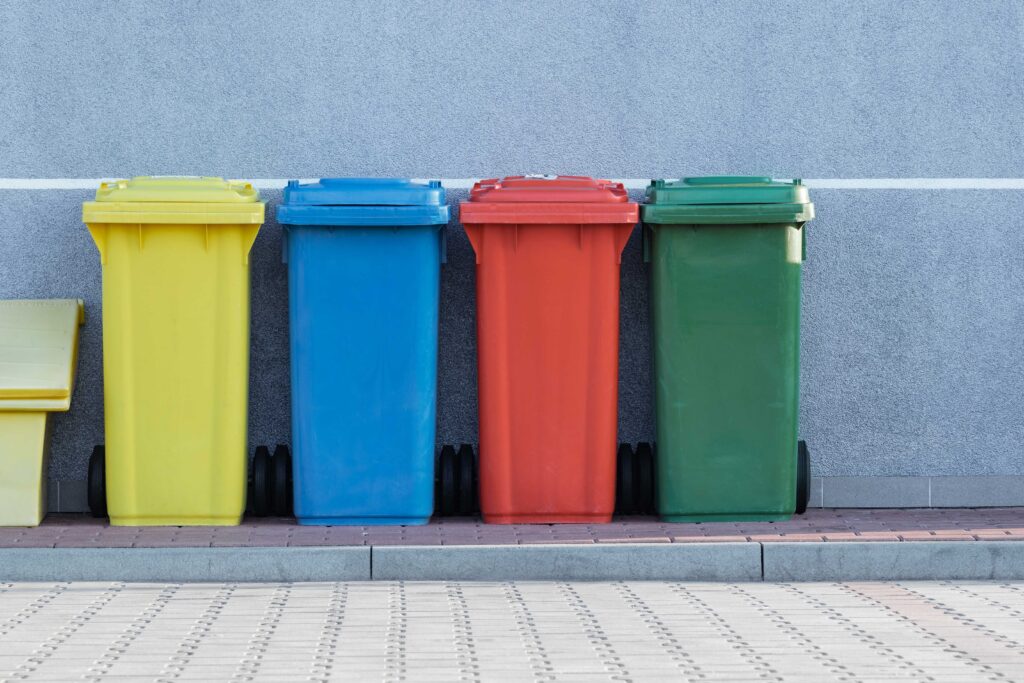Sustainability Matters: Tackling Event Waste in an Eco-Conscious World

The excitement and vibrancy of events whether their conferences concerts festivals weddings or corporate galleries often leave attendees with lasting memories however there’s a less glamorous aspect to these events that demands our attention which is the significant amount of waste they generate. In this article we developed into the reasons behind why I learned to produce so much waste and explore potential solutions for a more sustainable event industry. Anarchy area agency one of the pillars of our agency is sustainability so this topic is extremely important to us as an agency.
Disposable Culture
Disposable culture has become the norm in our society over the past 100 years however this is slowly changing with the rise of Green Initiatives and government intervention . Disposable culture is primarily driven by the desire for convenience and cost-effectiveness. Event planners often choose disposable items like single-use cutlery, plates, and decorations to simplify cleanup and reduce labor costs. Attendees, too, have come to expect this convenience, rarely questioning the environmental impact.
One of the most alarming aspects of this culture is its environmental toll. Disposable products, especially those made from non-biodegradable materials like plastic, contribute to pollution and landfill waste. Plastic utensils and decorations can take centuries to break down, releasing harmful chemicals into the environment as they deteriorate. This waste not only threatens ecosystems but also exacerbates the global plastic crisis.
Moreover, the production of disposable items consumes vast amounts of natural resources and energy, contributing to greenhouse gas emissions. From the extraction of raw materials to manufacturing and transportation, each step in the disposable product lifecycle has an environmental footprint.
The solution to this unsustainable culture lies in embracing eco-friendly alternatives. Event planners and attendees can opt for reusable or compostable products, reducing their carbon footprint and waste generation. Many companies now offer innovative solutions, such as biodegradable plates and cutlery made from sustainable materials like bamboo or cornstarch.
Additionally, event planners can encourage sustainability by implementing waste reduction strategies, such as recycling stations and responsible waste management. By promoting awareness and education among attendees, they can inspire a shift toward more eco-conscious choices.
Over Consumption
Over-consumption events often include excessive consumption from food to beverages to temporational materials and giveaways some of these promotional materials and give away are amazing however a lot of the time they are frivolous items that won’t get used by attendees . Attendees may take more than they need or use leading to surplus waste. The desire to make events feel grand and lavish can drive this over consumption with additional items ordered than what is needed .
One of the most significant downsides of overconsumption in events is the financial burden it places on event organizers and attendees. Excessive spending on opulent venues, elaborate decorations, and luxury items can lead to inflated event budgets and higher ticket prices. This, in turn, can exclude individuals who cannot afford to participate, limiting the inclusivity of events.
Moreover, overconsumption in events has a substantial environmental impact. The abundance of disposable decorations, single-use items, and food waste generated by lavish buffets contribute to environmental degradation. The excessive use of resources and energy for large-scale events, such as weddings and conferences, also exacerbates climate change.
Lack of Recycling Infrastructure
Lack of recycling and waste management infrastructure is one of the difficult issues that is being faced by events which currently prevents agencies from reducing waste. The lack of initiative by governments in creating and promoting recyclable initiatives has had knock on effects which plagues the event industry trying to comply with waste management regulations. Politics aside, one of the greatest issues is inadequate waste management infrastructure at event venues and lack of clear recycling and composting systems . When proper disposal options are not readily available, attendees and vendors are more likely to discard items in the trash adding to land filled waste.
One of the primary challenges associated with the lack of recycling infrastructure is inadequate collection and sorting facilities. In many areas, curbside recycling pickup services are limited, leaving residents with no choice but to dispose of recyclable materials alongside general waste. Even in places where collection exists, the sorting and processing of recyclables are often subpar, leading to contamination and decreased recycling rates.
Recycling infrastructure is hindered by inconsistent regulations and guidelines. Recycling varies widely from one region to another, with different rules governing what can and cannot be recycled. This lack of standardization confuses consumers and makes it more challenging for them to participate effectively in recycling efforts. These regulations change not just between countries and cities but also between local councils.
Another critical issue is the scarcity of recycling facilities for specific materials, such as electronics, hazardous waste, or textiles. These materials require specialized recycling processes that are often unavailable or not easily accessible to the general public. As a result, many people dispose of these items improperly, contributing to environmental pollution.
Excessive Packaging
Excessive packaging and decorations also contributes to event waste. Items such as decorative items, banners, and signage are often single use and end up in the trash after the event. Similarly, product packaging for large heavy items are usually nonrecyclable or too difficult to recycle due to lack of recyclable options. Bubble wrap and plastic packaging within a cardboard box is usually unrecyclable and ends up in landfill.
The production of packaging materials consumes vast amounts of resources and energy, contributing to greenhouse gas emissions and deforestation. Additionally, the disposal of excess packaging contributes to overflowing landfills and pollution.
Plastic packaging, in particular, has become a poster child for the excessive packaging problem. Single-use plastics are notoriously harmful to the environment, taking centuries to break down while releasing harmful chemicals. Plastic waste, often generated by products like bottled water or individually wrapped snacks, poses a severe threat to ecosystems and marine life.
Moreover, excessive packaging is not just an environmental concern but also a financial one. Manufacturers pass on the cost of packaging to consumers, driving up the price of goods. This extra expense can strain household budgets and make essential products less affordable for those on limited incomes.
Food Waste
Food waste is a significant issue at events where organisers often prepare more food than necessary to ensure all the attendees are served and are full. Additionally, attendees may not finish their meals or may leave behind untouched portions. This excessive food often ends up in the trash. An example of this is an event I personally witnessed as an attendee in which, an event was catered for 400 people however no one ate the food leading to several 120 litre bins being filled of unwanted food and due to legal liability rules none of the staff were allowed to take any of the excess food home.
The scale of food waste in events is staggering. According to the Food and Agriculture Organization (FAO) of the United Nations, approximately one-third of all food produced globally is lost or wasted, and events contribute their fair share to this statistic. When lavish buffets go uneaten, and untouched dishes are discarded, not only does it impact the environment, but it also raises questions about the ethics of such extravagance.
One of the primary reasons behind food waste at events is overestimating the amount of food needed. Event planners often worry about running out of food and opt to prepare surplus quantities, which often end up in the trash. Moreover, guests may take more food than they can consume, driven by the desire to sample a variety of dishes.
Conclusion
The biggest hurdles to increasing sustainability and reducing weight waste is unfortunately beyond our control sometimes due to the lack of recyclable options which aren’t reasonable and accessible. Lack of government initiative in providing eco friendly options to waste management and the cost of recyclable materials are sometimes higher than disposable materials. Client preferences are sometimes for lower budget options which aren’t as sustainable and the simple fact that some events are not sustainable due to the amount of people it has to service such as large festivals and gatherings .
Events are inherently temporary which can lead to use and discard mentality attendees vendors and organisers may not provide prioritise sustainability as they would in more permanent settings. This is particularly true , with high budget individuals and organisations who don’t care how much things cost and what is done with the items after the event .
A lack of awareness about waste reduction and sustainable practises can perpetrate the problem vent organisers may not prioritise sustainability due to budget constraints or a lack of understanding of the environmental impact.
Do you want to someone to take over your event and manage your event for you with experience in event management and budget? Give Arcadia Agency a buzz or an email here. Not sure whether you want to chat yet? we get it, random emails are intimidating so check out our Linked In page for more information.
